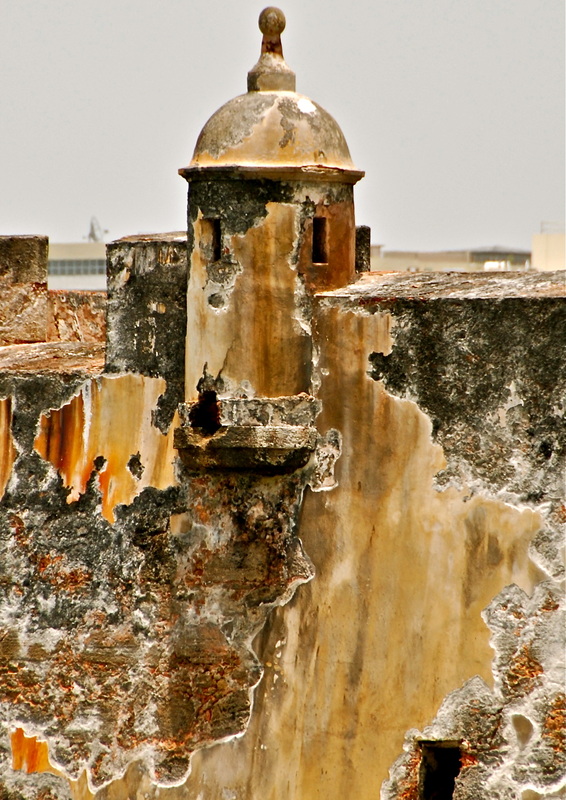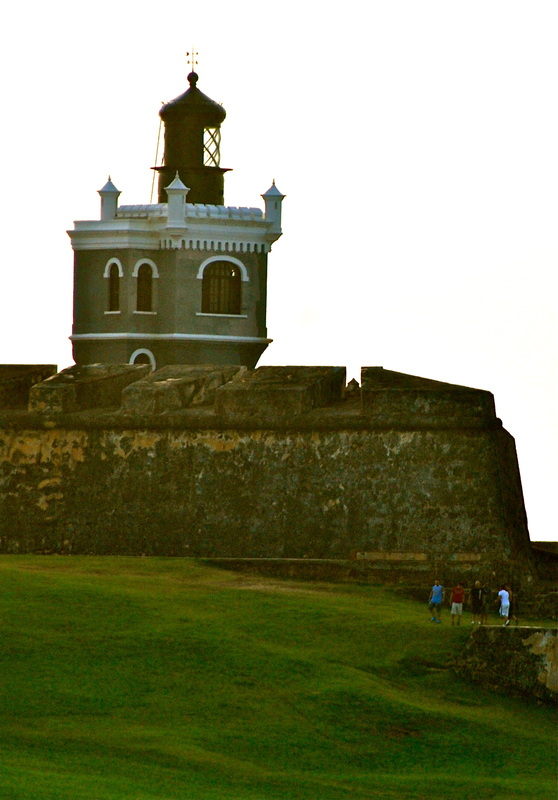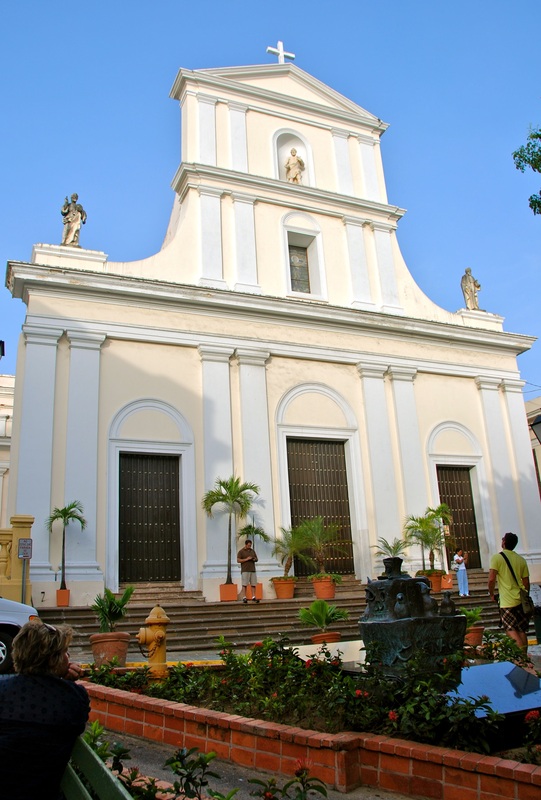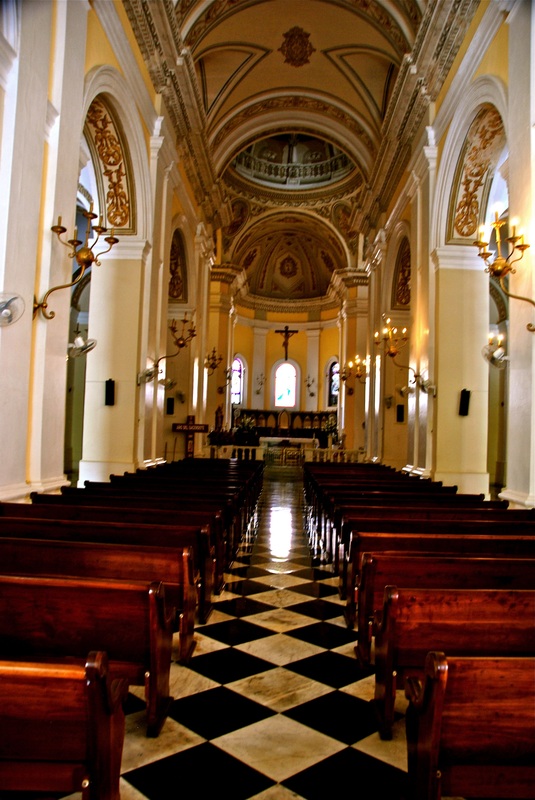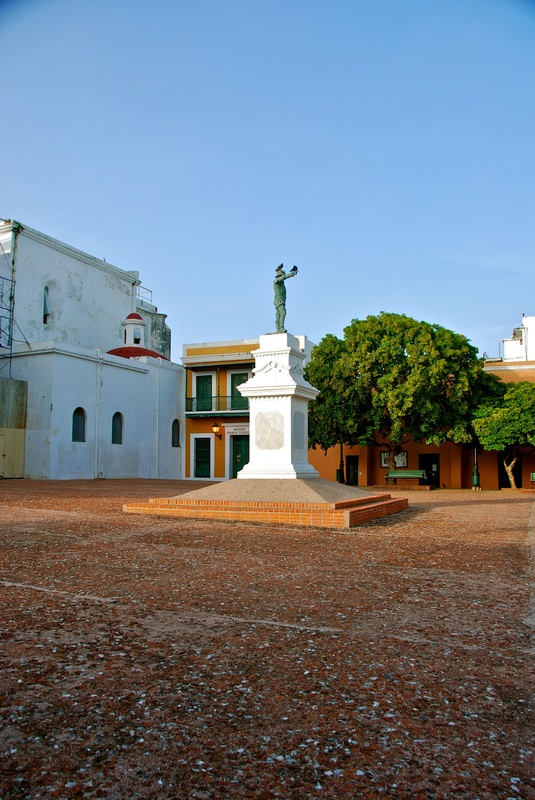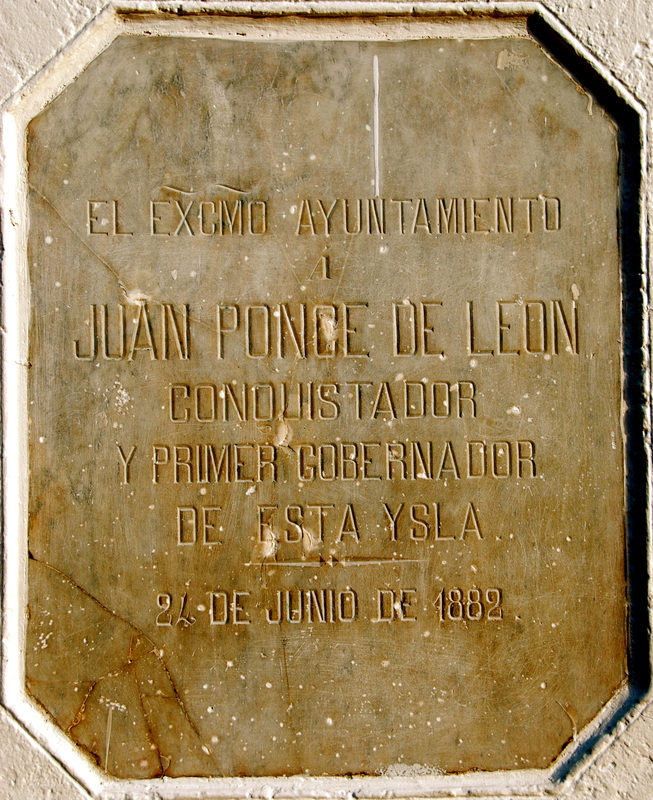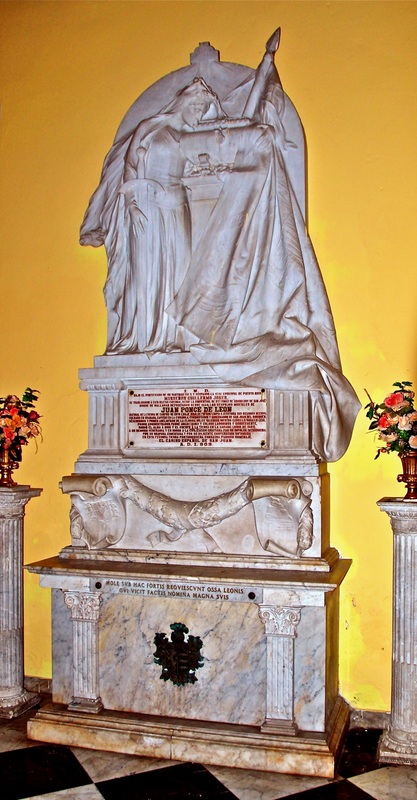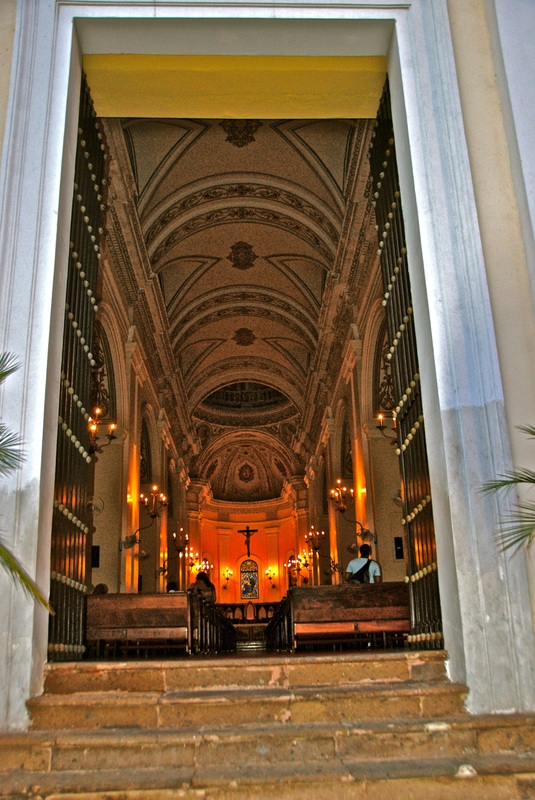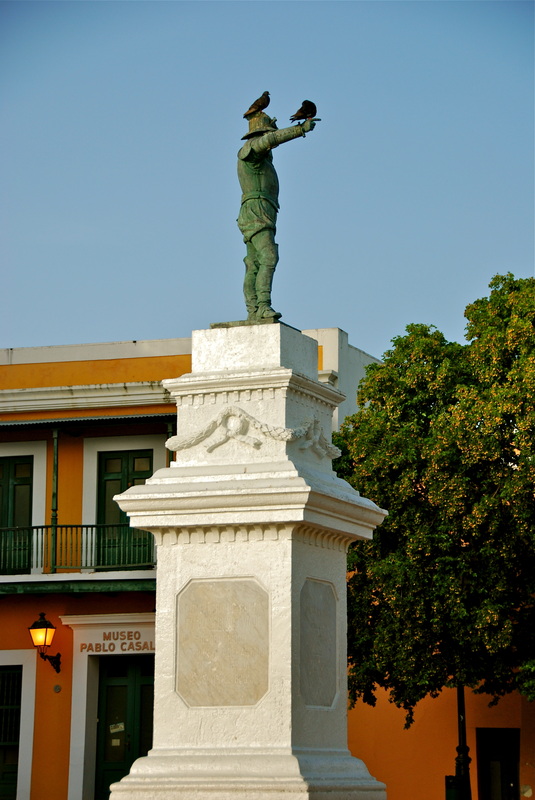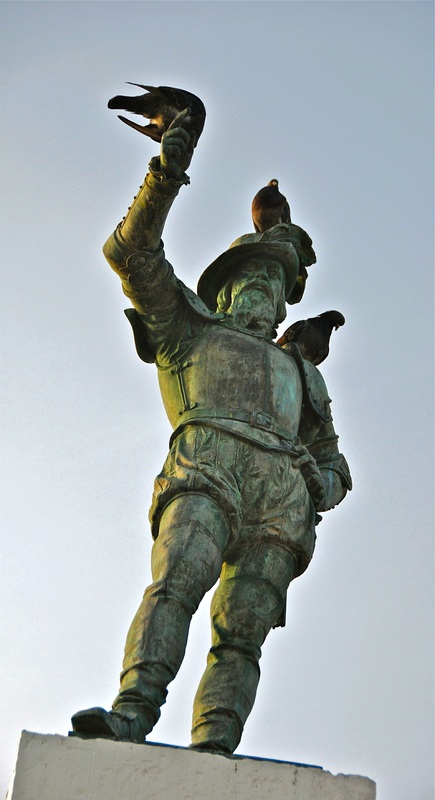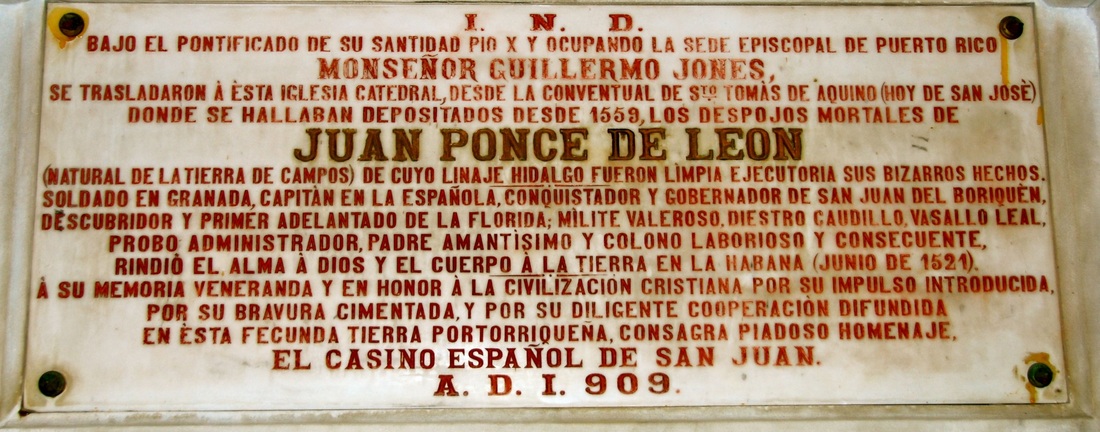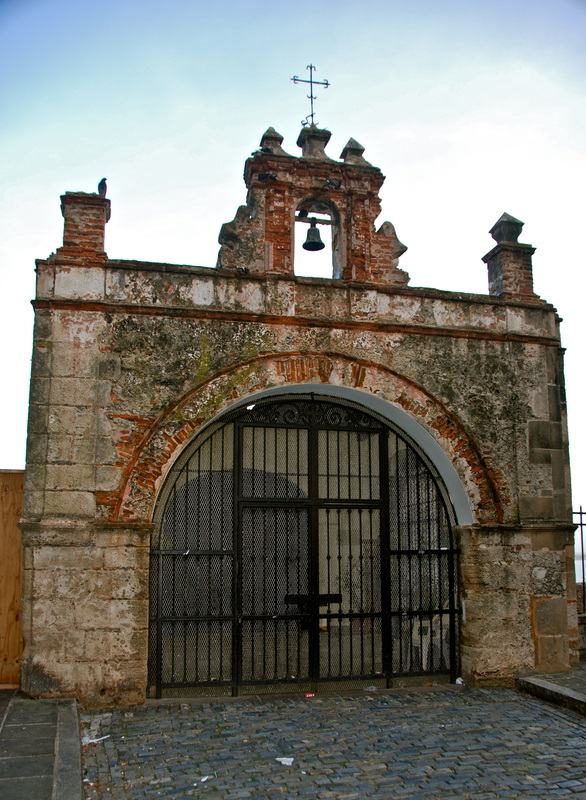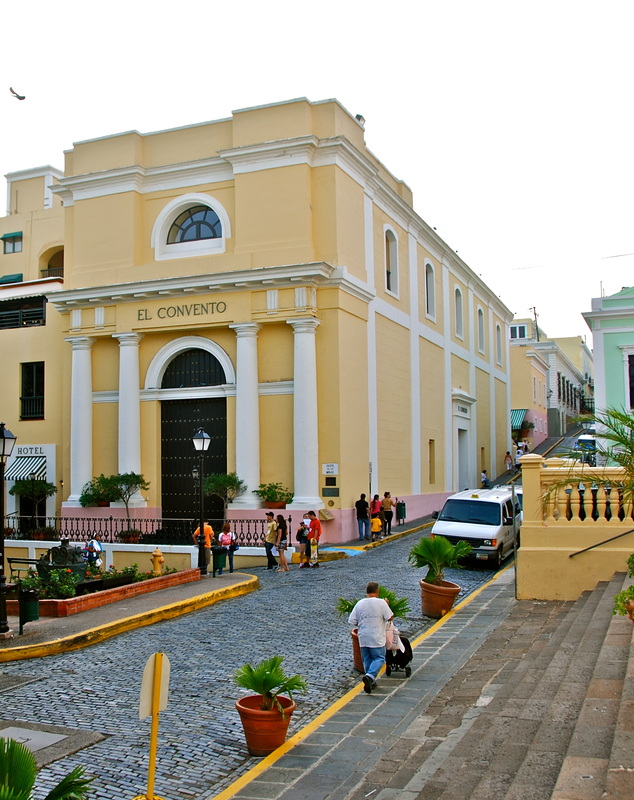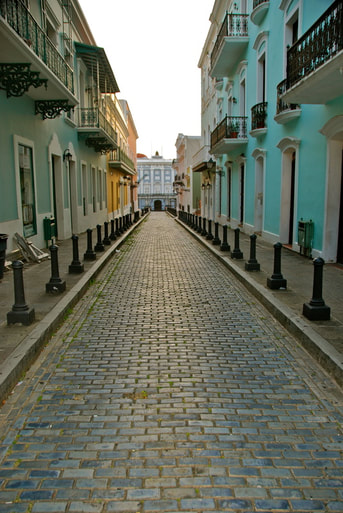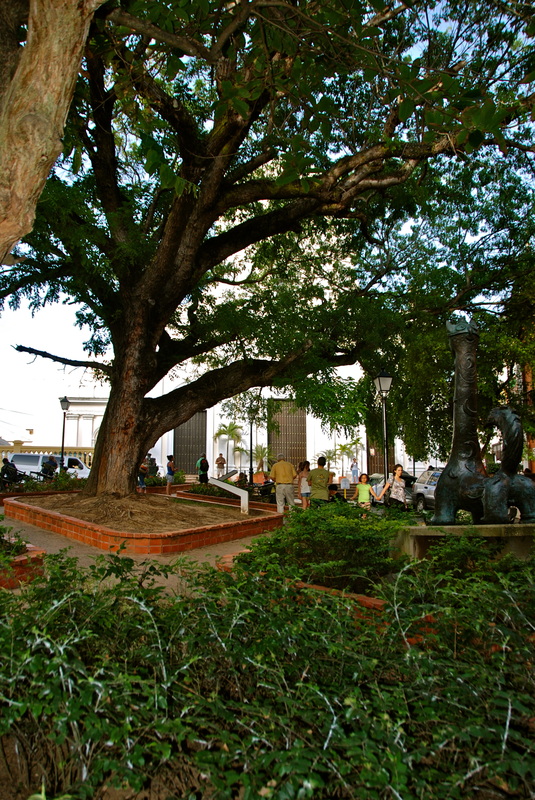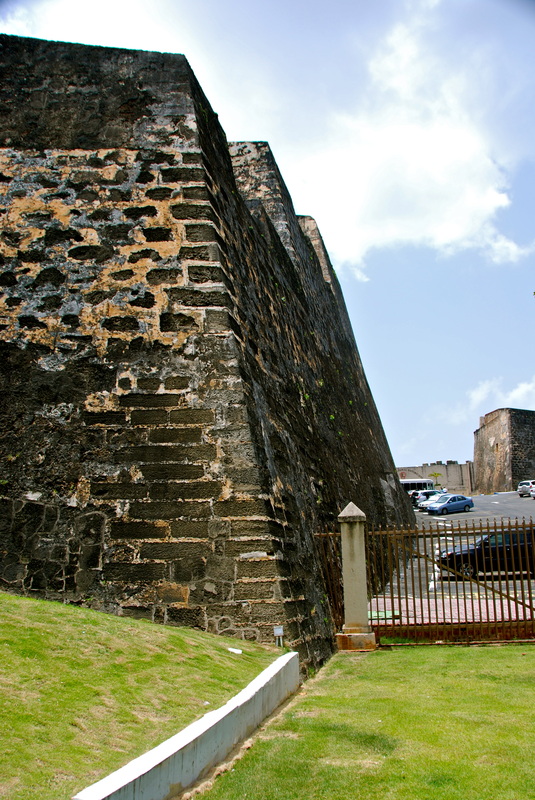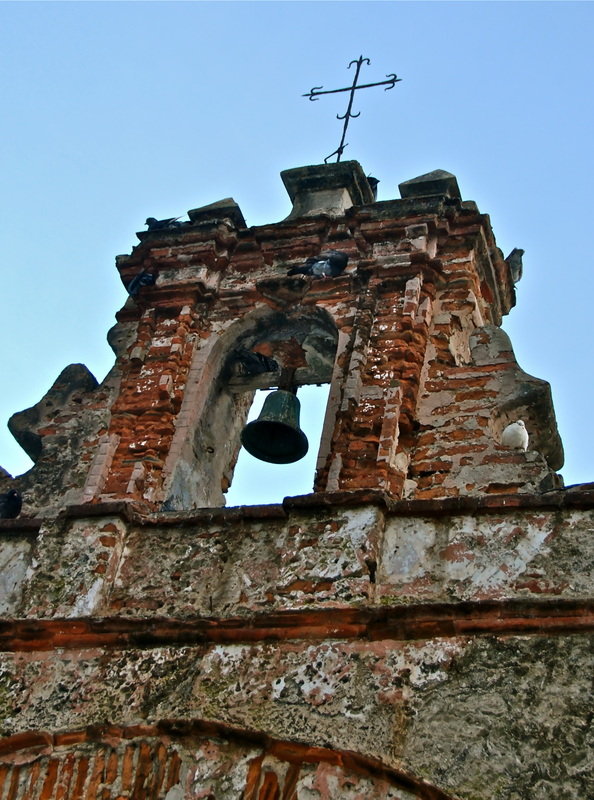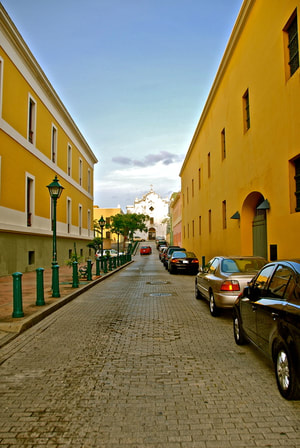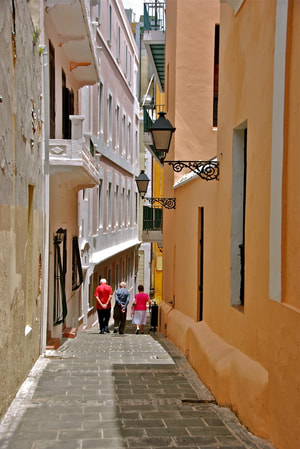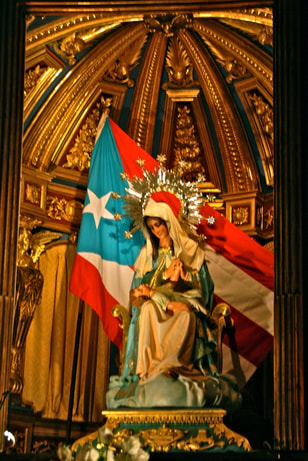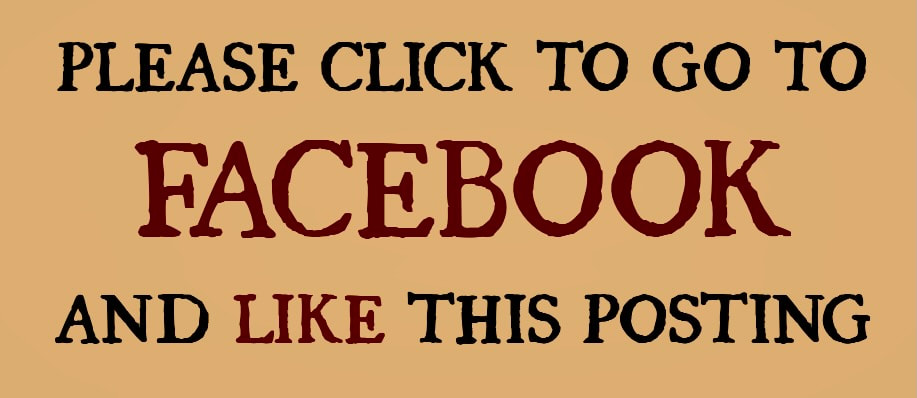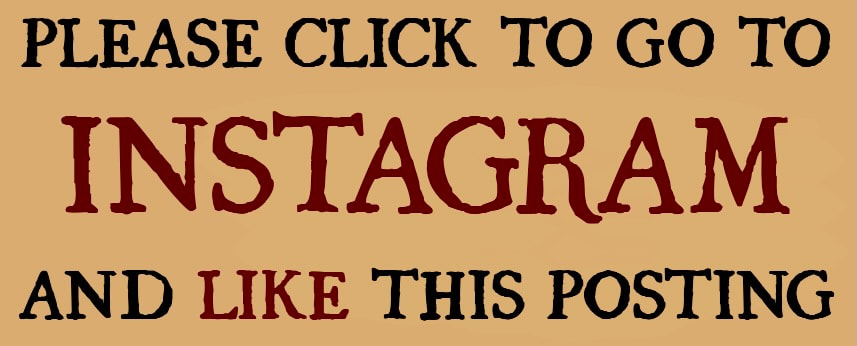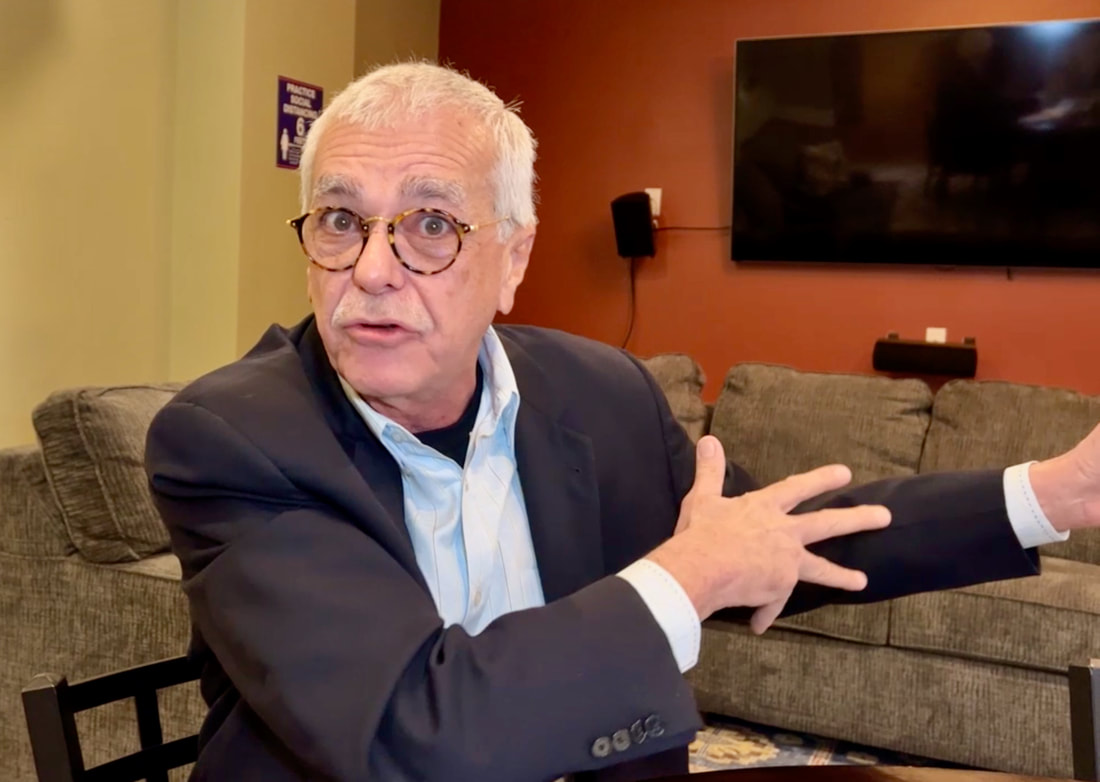14. From Puerto Rico -
Our Quincentennial Is Coming!
|
By Miguel Pérez
SAN JUAN, Puerto Rico — September 9, 2009 -- When they take the time to read the writing carved on a marble wall in a particularly dark section of the San Juan Bautista Metropolitan Cathedral here, that's when visitors finally realize they are standing before the gravesite of one of the great Spanish conquistadors. "Is that the Juan Ponce de Leon?" one of them whispered. I nodded my head and took pictures of the resting place of the man who first explored this beautiful island, became its first governor — by a royal decree from King Ferdinand of Spain — and then went on from here to discover and name the "Florida" territory we know as the United States. Because little effort is made in Puerto Rico to promote this great historical site, American tourists are surprised to stumble onto it. Even in the cathedral's own history booklet, sold at the gift counter, Ponce de Leon's tomb is mentioned only as an afterthought, in the cutline for a small photograph. Two blocks away at the nearly deserted Plaza de San Jose, only the pigeons seem to be interested in the imposing statue of the man who, according to the writing on its pedestal, was a "shipmate of Columbus during his second voyage" to the New World, "visited the island (of Puerto Rico) in 1508, came back to populate it in 1509, ended his conquest in 1511" and became the "discoverer of Florida" in 1513. From the Dominican Republic last week, this column questioned how the United States can ignore the upcoming quincentennial of Ponce de Leon's greatest discovery: our own North America! On April 2, 2013, exactly 500 years after the land we call home was first spotted by our European ancestors, why would we deprive ourselves of such a great birthday? One logical explanation would be the still-enduring effects of "The Black Legend," that insidious centuries-old campaign by Anglo-Saxon scholars to minimize the accomplishments of the Spanish explorers and to portray the conquistadors and their Latin American offspring as crueler and less civilized than other European settlers in the Americas. But Anglo-Saxons don't deserve all the blame. We Latinos can be our own worst enemies. Throughout the Western Hemisphere, many still are fighting 500-year-old battles between the Spanish invaders and the indigenous peoples of the Americas. Many still can't forgive the conquistadors, such as Ponce de Leon, for the atrocities committed under their command against the natives. And as a result, when we honor our Spanish ancestors, we do it with too many reservations. Here in Old San Juan — and in many other such Spanish colonial areas throughout the Americas — while we celebrate and take pride in our Spanish culture and traditions, we still have many psychological hang-ups about the individuals who brought it all to us. So if we are looking for the reasons no one in the United States seems to be getting ready for a big quincentennial celebration in 2013, Latinos need to look no further than the nearest mirror. Before we can ask why Ponce de Leon is not given bigger stature in the United States, we need to promote his memorial tomb, chase the pigeons away from his statue and elevate his stature in Puerto Rico. Granted, in his quest to conquer the island, Ponce de Leon's forces killed a lot of natives, and his efforts to quash native rebellions were ruthless. But unless we Latinos can learn to let go of our 500-year-old hang-ups, we will continue to be not only the victims of The Black Legend but also its promoters. In the United States, Americans don't dwell over the slaves owned or natives killed by some of the Founding Fathers and Revolutionary War heroes, because they recognize that those people lived in another time, with different moral standards, and that their historical accomplishments mattered so much more! Of course we revile slavery and the genocide against Native Americans, but we seldom pick on the individuals who upheld those barbaric standards, especially because many are also genuine American heroes. Unfortunately, many Latinos have not learned to feel that way about the conquistadors yet. "Anyone who celebrates Oct. 12, 1492, is a traitor, a sellout and a disrespectful son of a low life b——," wrote one such resentful person reacting to a YouTube video from a TV program on which I interviewed some of the New York descendants of the Taino Indians of the Caribbean. "You wanna celebrate Oct. 12, 1492? Go to f——— Spain and do it! Not here in the Americas! That is total disrespect to the native people if you do!" Curiously, Latinos who feel that way are usually those on the extreme left of the political spectrum. In promoting The Black Legend, they make strange bedfellows with Americans on the extreme right, those who still are writing letters that reflect what they learned from Anglo-Saxon historians. "ONLY Miguel Perez would feel 'nostalgia' for the places where natives were forced to bring gold in order to keep from having their hands chopped off," wrote another resentful person, from the opposite end of the spectrum, reacting to my column from Santo Domingo last week. "Or for a place where genocide and mass murder was performed on peaceful natives ... or where HISTORY and CULTURE was destroyed ... all in the name of God." Among the extremists, The Black Legend is alive and well. On one extreme end of the political spectrum, you have Americans who would oppose celebrating our 2013 quincentennial because we already have a birthday — the Fourth of July — and to recognize our "Discovery Day" would be to acknowledge the centuries of American history when the presence of Spanish was dominant here, a history that mostly has been distorted or hidden, thanks to The Black Legend. On the extreme left, you would have Latinos who would oppose the celebration by asking how Ponce de Leon could have "discovered" a land that already was inhabited by natives. They would make some of the other tired arguments they use to promote Spanish cruelty and deny the Spanish achievements in the New World. And in doing so, they also would be promoting The Black Legend, which is still the basis of discrimination against Latinos in the United States. But those are just the extremists. How about the rest of us? Next week: What do we do about celebrating April 2, 2013? Our quincentennial is coming! COPYRIGHT 2009 CREATORS.COM |
En español
|

